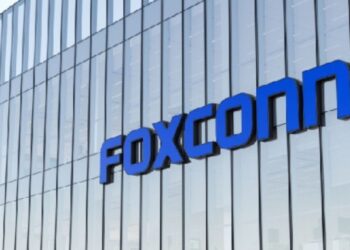The quasi-celebrity billionaire, famed for his distinctive leather jacket, stated that the work of businesses like OpenAI and Google in developing advanced AI systems known as frontier models is “really, really important.” However, he went on to remark that the ability to produce intelligence at scale is novel.
“That’s one of the reasons why I’m almost certain now, as we’re building these factories everywhere for all these different initiatives, that we’re at the beginning of the new industrial approach,” he said at the Databricks data and AI event in San Francisco on Wednesday.
“Instead of generating electricity, we’re generating intelligence,” and ultimately “every one of us will become intelligence manufacturers,” Huang said.
He is particularly enthusiastic about the use of AI in customer service because “every company, every industry, has it.” Huang anticipated that data growth could increase a hundredfold every five years as a result of customer service applications.
On Monday, Nvidia’s stock began trading following a 10-for-1 stock split based on Friday’s closing price of $1,210. This has no effect on the company’s valuation or performance, but it does make the stock more appealing to ordinary investors by lowering the price per share.
The Nasdaq-listed company, with a market capitalization of $3.08 trillion (£2.4 trillion), has experienced a 200 percent increase in the previous year, owing to increased commercial demand for its GPUs, which are critical for powering AI models such as OpenAI’s ChatGPT and Google’s Gemini.
Thanks to its performance, Nvidia just reported $26 billion in sales for the first quarter of fiscal year 2025, a 262% increase over the previous year. Net profit increased to about $15 billion, up from $2 billion a year earlier.
Huang stated, “Companies and countries are partnering with Nvidia…to produce a new commodity: artificial intelligence.”
Nvidia has collaborated with numerous technology businesses, including Amazon, Shopify, and Slack, as well as government agencies.
On Tuesday, it expanded its cooperation with Databricks, a US company that assists organizations in developing AI models using their proprietary data sets. It strives to cut expenses for its clients, which include Burberry, Rolls-Royce, and Shell.







